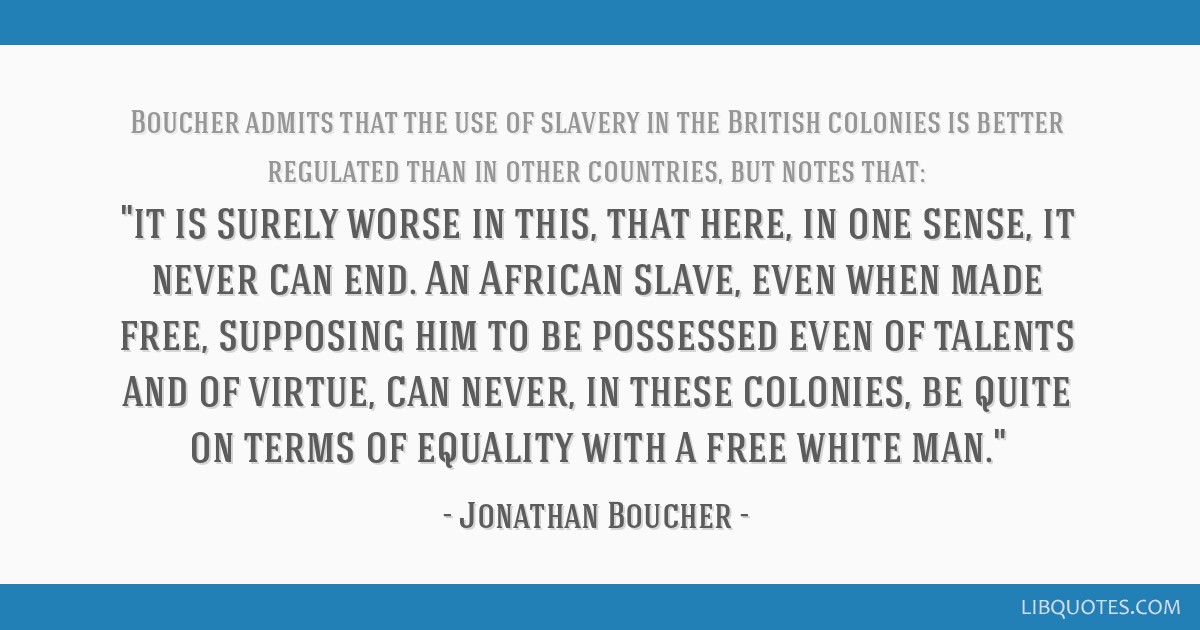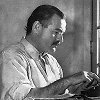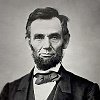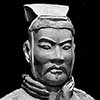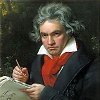Boucher admits that the use of slavery in the British colonies is better regulated than in other countries, but notes that:
"it is surely worse in this, that here, in one sense, it never can end. An African slave, even when made free, supposing him to be possessed even of talents and of virtue, can never, in these colonies, be quite on terms of equality with a free white man."
"A View of the Causes and Consequences of the American Revolution" (London, Robinson, 1797)
